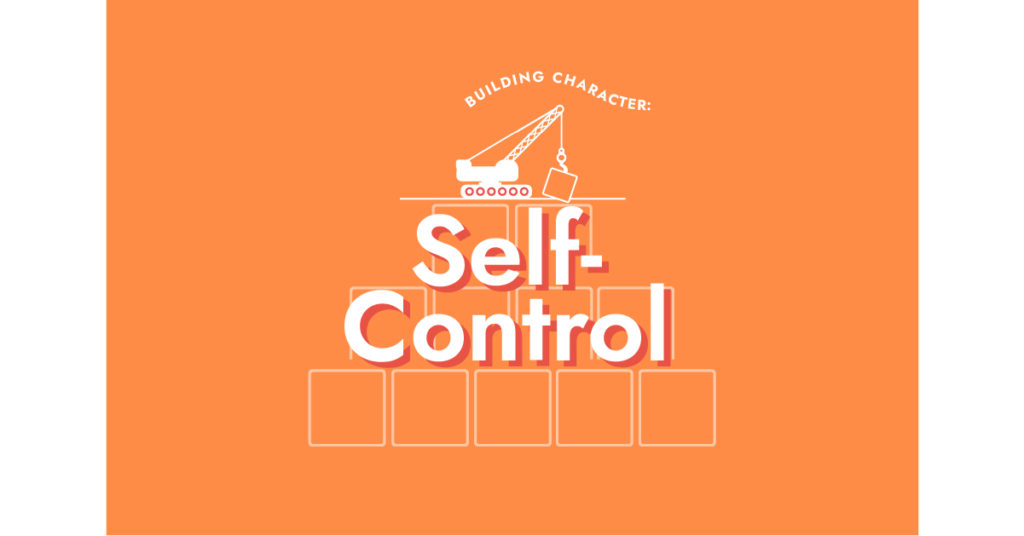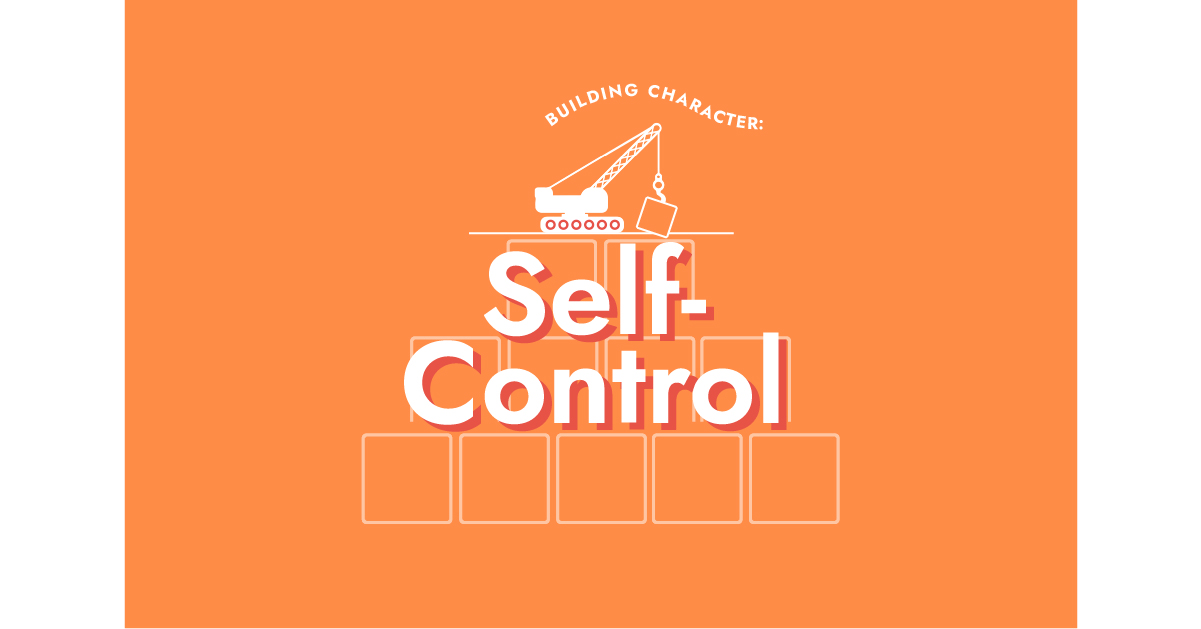
Mastering Self Control for Kids: A Comprehensive Guide for Parents
In today’s fast-paced world, the ability to exercise self control for kids is more crucial than ever. It’s a foundational skill that impacts everything from academic success to social interactions and future life choices. As parents, we play a pivotal role in nurturing this essential trait. This guide provides a comprehensive overview of self control for kids, exploring what it is, why it matters, and, most importantly, how you can help your child develop it.
Understanding Self Control
Self control, at its core, is the ability to regulate one’s emotions, thoughts, and behaviors, especially in the face of temptations or impulses. It’s about making conscious choices rather than reacting impulsively. For children, this can manifest in various ways, from resisting the urge to grab a toy from another child to focusing on homework instead of playing video games. It’s important to understand that self control is not an innate trait; it’s a skill that develops over time with practice and guidance.
The development of self control for kids is closely linked to the prefrontal cortex, the part of the brain responsible for executive functions like planning, decision-making, and impulse control. This area of the brain continues to develop well into adulthood, meaning that children’s capacity for self control grows as they mature. Understanding this developmental aspect is key to setting realistic expectations and providing age-appropriate support.
Why Self Control Matters
The benefits of strong self control extend far beyond immediate obedience. Research consistently demonstrates a strong correlation between self control and positive life outcomes. Children with good self control tend to perform better academically, have stronger social skills, and are less likely to engage in risky behaviors later in life. They are also better equipped to manage stress, cope with challenges, and achieve their goals.
- Academic Success: Children with good self control are better able to focus in class, complete assignments, and resist distractions.
- Social Skills: Self control helps children navigate social situations effectively, manage conflicts, and build healthy relationships.
- Emotional Regulation: The ability to regulate emotions is a key component of self control, allowing children to manage frustration, anger, and anxiety in constructive ways.
- Future Success: Studies have shown that self control is a stronger predictor of future success than IQ.
Strategies for Developing Self Control in Kids
Helping your child develop self control requires patience, consistency, and a supportive environment. Here are some effective strategies you can implement:
Model Self Control
Children learn by observing the adults around them. Demonstrate self control in your own life by managing your emotions, making thoughtful decisions, and resisting impulsive behaviors. If you want your child to practice patience, show them patience yourself. If you want your child to manage their anger, demonstrate healthy coping mechanisms when you are frustrated.
Teach Emotional Literacy
Help your child identify and understand their emotions. When children can recognize and name their feelings, they are better equipped to manage them. Talk about different emotions, read books about emotions, and encourage your child to express their feelings in healthy ways. [See also: Understanding Emotional Intelligence in Children]
Practice Delay of Gratification
The classic marshmallow test is a great illustration of delay of gratification. You can practice this concept at home by offering your child a small reward immediately or a larger reward if they wait a certain amount of time. Start with short waiting periods and gradually increase them as your child’s self control improves. This helps them understand that sometimes waiting leads to a better outcome.
Establish Clear Rules and Expectations
Children thrive in structured environments with clear rules and expectations. Set clear boundaries for your child’s behavior and consistently enforce them. When rules are predictable, children are less likely to test them and more likely to develop self control. Make sure the rules are age-appropriate and explained in a way that your child understands.
Provide Opportunities for Choice
Giving children choices, even small ones, can help them develop a sense of autonomy and control. Offer choices within reasonable boundaries, such as “Do you want to wear the blue shirt or the green shirt?” or “Do you want to do your homework before or after dinner?” This empowers them to make decisions and practice self control.
Teach Problem-Solving Skills
When children encounter challenges, they need to have the skills to solve them effectively. Teach your child how to identify problems, brainstorm solutions, and evaluate the consequences of each solution. This helps them develop critical thinking skills and make responsible choices.
Use Positive Reinforcement
Focus on rewarding positive behavior rather than punishing negative behavior. When you see your child demonstrating self control, praise them for their efforts. Positive reinforcement encourages them to continue making good choices. Use specific praise, such as “I’m so proud of you for waiting your turn so patiently.”
Teach Mindfulness and Relaxation Techniques
Mindfulness and relaxation techniques can help children calm their minds and manage their impulses. Teach your child simple breathing exercises, meditation techniques, or guided imagery. These techniques can be particularly helpful in moments of stress or frustration. [See also: Mindfulness Activities for Kids]
Limit Screen Time
Excessive screen time can negatively impact self control. Limit your child’s screen time and encourage them to engage in other activities that promote creativity, physical activity, and social interaction. The constant stimulation of screens can make it difficult for children to focus and regulate their impulses.
Practice Patience
Developing self control takes time and effort. Be patient with your child and celebrate their progress, no matter how small. Remember that setbacks are normal, and use them as opportunities for learning and growth. The key is to create a supportive and encouraging environment where your child feels safe to practice self control.
Addressing Challenges and Setbacks
It’s important to acknowledge that developing self control is not always a smooth process. Children will inevitably face challenges and setbacks along the way. Here’s how to address these situations:
- Identify the Triggers: Help your child identify the situations or triggers that lead to impulsive behavior. Once you know the triggers, you can work together to develop strategies for managing them.
- Teach Coping Mechanisms: Equip your child with healthy coping mechanisms for dealing with stress and frustration. This could include taking deep breaths, counting to ten, or talking to a trusted adult.
- Review the Rules: If your child breaks a rule, calmly review the rule and explain why it’s important. Avoid lecturing or shaming them.
- Focus on Solutions: Instead of dwelling on the mistake, focus on finding solutions for the future. Ask your child what they could do differently next time.
- Seek Professional Help: If your child is struggling significantly with self control, consider seeking professional help from a therapist or counselor. They can provide individualized support and guidance.
The Long-Term Impact of Self Control
Investing in your child’s self control is an investment in their future. The skills they learn now will benefit them throughout their lives. As they grow older, they will be better equipped to make responsible choices, achieve their goals, and build fulfilling relationships. Strong self control is a key ingredient for a happy and successful life.
In conclusion, self control for kids is a vital skill that can be nurtured and developed with the right support and guidance. By modeling self control, teaching emotional literacy, practicing delay of gratification, and establishing clear rules and expectations, you can help your child build a strong foundation for success. Remember to be patient, celebrate their progress, and provide a supportive environment where they feel safe to learn and grow. By prioritizing self control, you are giving your child a valuable gift that will last a lifetime.

